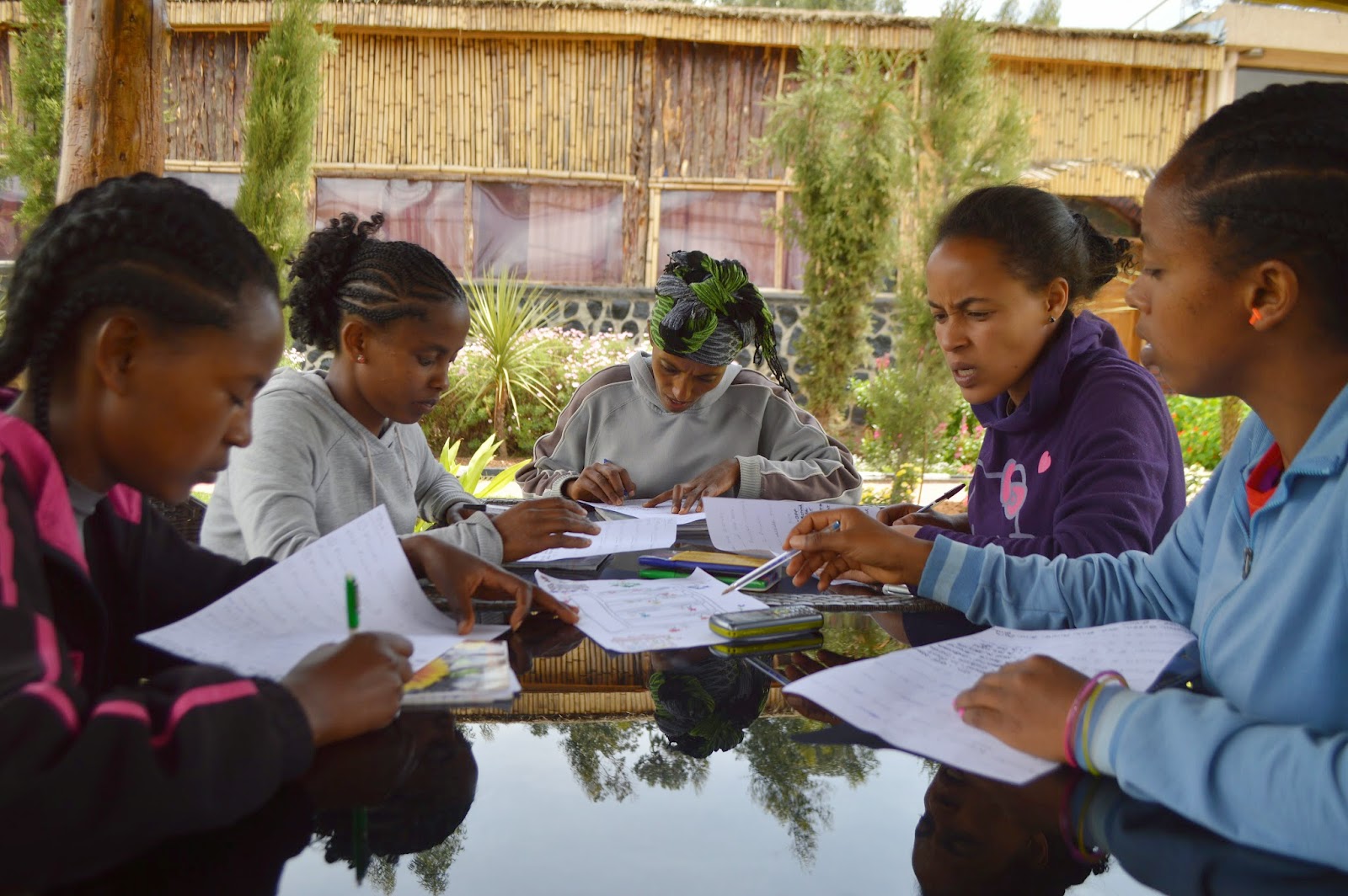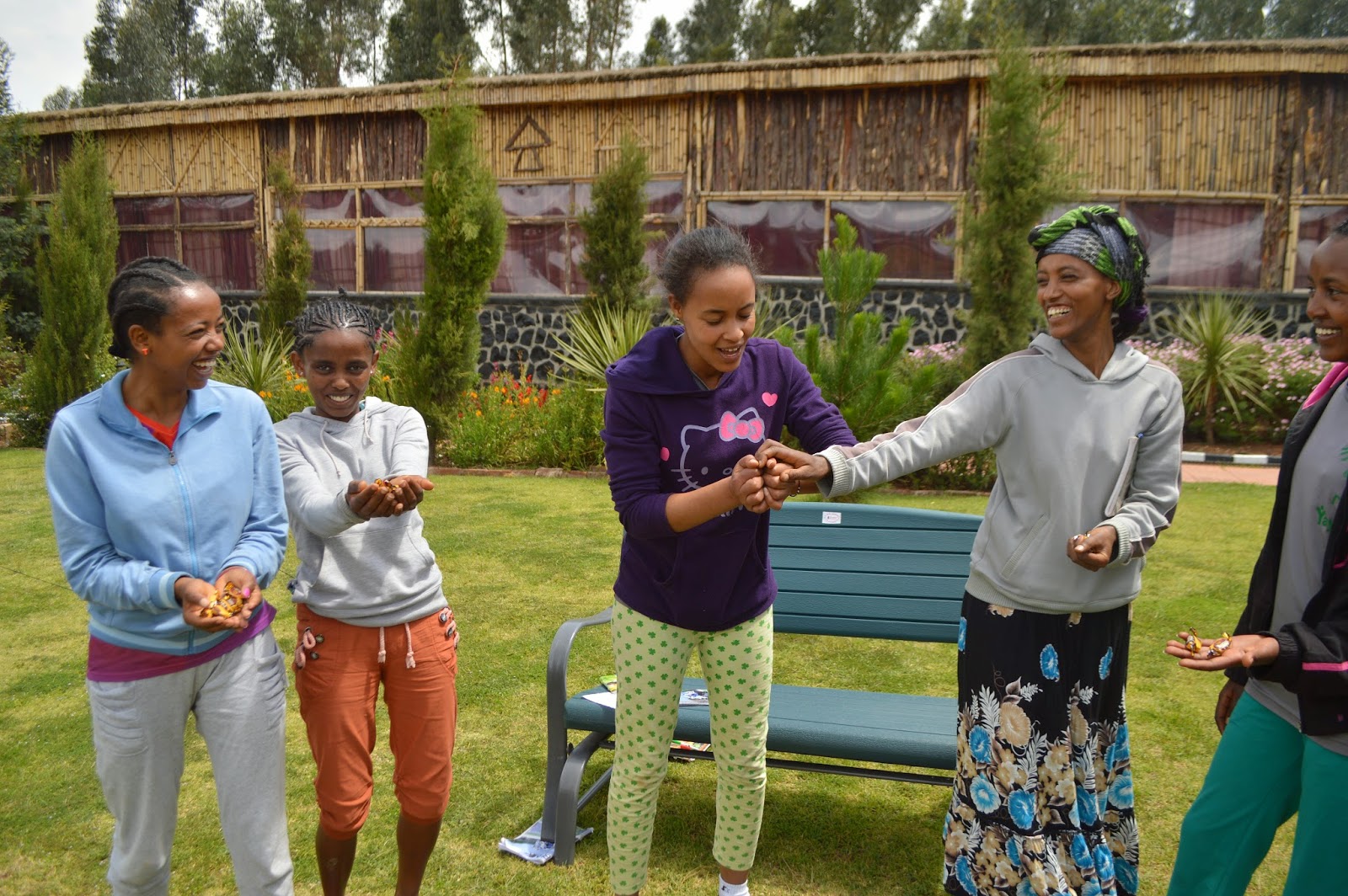I’ve been trying
to keep my entries lighthearted, I’ll admit I’ve been selective about what
stories I’ve shared and I honestly don’t write unless I’m happy. I mentioned in
one of my earlier entries about the poverty, the poor animals and the rubbish.
I haven’t gone into detail of the beggars, the blind men wandering the streets,
or the mothers with children at their feet and babies on their breasts. I
haven’t told you about the half-naked young woman reeling in pain, lying on her
back in the middle of the pavement as two babies clung to both breasts, searching
for milk. It is shocking and people help when they can, but for the most part
people harden themselves to this poverty. What else can you do? You give to
whom you can, and hope that the young children won’t use the money for
glue. But perhaps sniffing glue is the
only escape from their reality- and while it many only last a few hours, maybe
that’s worth more than food? I’m not sure. I don’t want to believe it is.
But people are
friendly. Despite the mad driving; overtaking around corners and over hills, very
few traffic lights, no adherence to zebra crossings, swerving to avoid stray
dogs, packs of docile donkeys and horse drawn carts, and the abrupt minibus
stops to pick up random people along the roads- everyone remains calm! Yes,
there might be the odd middle finger thrown around or a few taps to the temple,
but road rage is not the Ethiopian way. In fact people apologize, wave or more
often, toot their horns to express their thanks or signal that they’re moving.
But it’s more
than that. Yesterday I was inline waiting for a minibus to take me back to
Suluta from Addi Sui when I noticed a man stumbling out of a hole-in–the-wall
tavern. He was absolutely tanked and as he was making his way down the stairs
he aggressively grabbed the jacket of another fairly tipsy man, pulling him towards
his chest. I thought- here we go, the fists are going to fly now… But the
second man gently loosened the first man’s grip and instead of retaliating, he
guided him down the stairs.
And the week
before last Banchi and I had hitched a ride from a lorry (I know…perhaps a questionable
decision) into town and as traffic slowed going down the mountainous hills towards
Addis, we saw that loads of minibuses, lorries and cars had pulled over and
people were gathering at the side of the road. As we drove past we noticed that
a woman who’d been carrying a large load of sticks was unconscious and lying in
the gutter with a massive welt on her forehead. It must have just happened as
people were still trying to carry her out of the gutter. Our lorry driver
stopped grabbed the water bottle in my hand and sprinted over to her. We’ll never
know what happened to her, and we can only pray she survived- but it was
overwhelming to see how many people had stopped and were trying to help.
I recounted both
stories to a new hotel guest, Marco- an Italian marathoner from Dubai- and we
agreed that while we may get some unwanted attention as foreigners, the general
population is friendly. Perhaps it’s the deep-set fear of God due the intense
religiosity here- whether it be Orthodox Christianity, Islam, Catholicism or Protestantism.
I’m not sure- I mean there are literally pictures of Jesus and Mary everywhere
(alongside posters of Will Smith, 50 Cent, Rooney, Christiano Ronaldo, Lampard
and Alex Ferguson) and the phrases Selum
Nu-“Peace” (be with you), Xavier
Mesgal- “Thank God”,and Xavier
Yestivus- “God be with you” are constantly used either as greetings,
exclamations or blessings to those in need. So yes, religion is a major part of
Ethiopian culture- but I believe it goes further than, as community also plays
a strong part in Ethiopian culture.
For example, the
traditional meal is ingera (a spongy flat pancake-like bread, that’s been
fermented and made from tef - it’s also gluten free and full of iron) and is
typically eaten with a type of bean based sauce or meat stew placed in the
middle of the ingera. The meal is typically shared, and is eaten by taking a
piece of ingera in your fingers and scooping up some sauce/stew, folding it
quickly into a little package and voila! You may only use your right hand, take
from the area in front of you, and when placing the package in your mouth avoid
putting your fingers in/on your mouth. Gousha is the practice of feeding
others- this is a sign of respect, informality and love. To refuse is
insulting, and it’s bad luck to be gousha’ed an uneven number of times. If
you’re loved enough you can go a whole meal without even touching the food.
Whenever anyone is eating they call to others saying “Inibla”- eat with us/me-
and it’s seen as an endearing invitation but it seems that eating alone is not
part of the Ethiopian culture. So if you’re with someone who’s eating, prepare
to be gousha’ed. (We eat it for dinner every night, and I already know I’ll
miss it when I come home. Group meals are the best, and with just a dish and a
pot there’s hardly any washing up to do- BONUS!)
Just like the
Irish, Ethiopians love to feed others.
Throughout a meal the host encourages its guest(s) to “Bea” –eat- or “Blah” if it’s a
male guest. And the food just keeps on coming, even if that means the host
offering food from his/her own plate. I’ve actually been at a sleepover and
just as we were falling asleep my amazing friend and host Banchi insisted that
I was hungry and rummaged up some bread. It was delicious but my British
backbone made sure we shared it.
While I’ve mostly
complained about men in my previous posts, I want to press the fact that my overall
impression of Ethiopian people in general has been wonderful. From the men who
gave up their seats for me on a minibus, to the old woman who offered to be my
Ethiopian mother (after I told her my Habesha name), to the young man who was
sure that I was lost and repeatedly asked how he could help me, to the friends
I’ve made at Yaya and the “GoushaWars” with the girls- I do believe Ethiopians
have Canadians beat for friendliness. There have been countless times that
Banchi has struck up lively conversations with complete strangers, offered
labourers from Yaya Village to eat and drink coffee with us, and has put the
Yaya girls and even me, before herself. I know Banchi is only one person, but she’s
convinced me that this is the true Ethiopian way.
The Yaya girls
might be madams sometimes, but what teenager isn’t every now and again- these
girls have already gone through so much and now, after 5 months of free
education, food, shelter and the opportunity to grow, make friends and get
vocational training, these girls have to go home and start again (this time
armed with positive experiences). Yesterday Banchi and I interviewed them
individually to take note of their plans for after Yaya; where they would live,
where they’d like to work, if they were excited for the upcoming Coca race and
Camp GLOW (a female empowerment camp in June, hosted and run by the Peace
Core), and if they’d consider coaching after they’d finished competing.
While she lived
alone before Yaya, Tigist is planning on moving in with her Uncle in Addis
until she can save up for her own place. Asnakitch will move back home until
she gets financially back on her feet (I told her I’m doing the same when I get
back to Canada, which cheered her up), Alumseye will move in with her Uncle in
Waserbi- just 5 mins walk from Yaya andLamrot will move in with a friend in
Addis but she’ll continue to work at Yaya Village. The
girls are excited for the race and the camp, but when we asked Alumseye her
eyes welled up and she admitted she’s worried that her Uncle won’t let her go
to the camp. I was shocked and asked Banchi why he’d be opposed to the camp as
the Yaya Girls Program will pay for it, it’s educational and girls across the
country have to compete (with written essays) to be accepted but our girls have
an automatic in…! Banchi shrugged, tipped her head to the side and replied, “In Ethiopia, it’s hard.”- a phrase
Banchi often uses to answer my cultural/societal questions.
Like any patriarchal society, in place of a father figure uncles have the last say over matters,
even if it’s just to make a point of who’s boss. Now, I don’t know this Uncle,
and if he raised Alumseye I’d assume he’s a great guy- but if he refuses to let
Alumseye go,Banchi and I have agreed that we’ll try to convince him ourselves.
But I can’t seem to get Alumseye’s tear filled eyes out of my mind, nor can I
forget watching her swallow the lump in her throat.
Interestingly
enough, while I’ve seen a glimpse of the poverty of Addis, the sad eyes of
beaten animals and the rubbish littering the streets and forests, Alumseye’s
worry for permission hit the strongest cord. Perhaps it’s because I know this
girl as constantly laughing, offering encouraging smiles, and as one of the
keenest to learn English- but it may also be because asking for permission is
something I constantly dealt with in High School and into University. Like many
parents, mine have always wanted the very best for me, and like many teenagers
there were things I did without permission; whether it was asking and doing it
anyway, or not asking and doing because I knew what answer I’d get. I wasn’t a
bad kid, but things like going for a sleepover with my best friend C.J, and later
crawling out a basement window for a party was sometimes a necessary evil. Of
course, being a little bit older I now understand why my parents would have
been worried had they known- and I’ll be just as protective as a parent. But
when I saw Alumseye’s eyes I immediately thought about the tattoo on my heel
that I got without permission- and while my Dad was furious,I did it knowing I
wouldn’t actually be disowned. However, the fear in Alumseye gives me the sense
that “No” really means No and dis-ownment
might be areal option- and for the first
time I’m worried for these girls and the homes they’re going back to… because “In Ethiopia, it’s hard.”
I can only hope
that the lessons they learned atYaya will keep them strong, empowered and
propel them towards success. They know that they’re always welcome back at Yaya
and we’ve asked them to always keep us updated on their home addresses and
phone numbers, so we can check in on them. That’s all I think we can really do;
it’s time for our little Spice chicks to leave the nest and see what their wings
can do! <3







